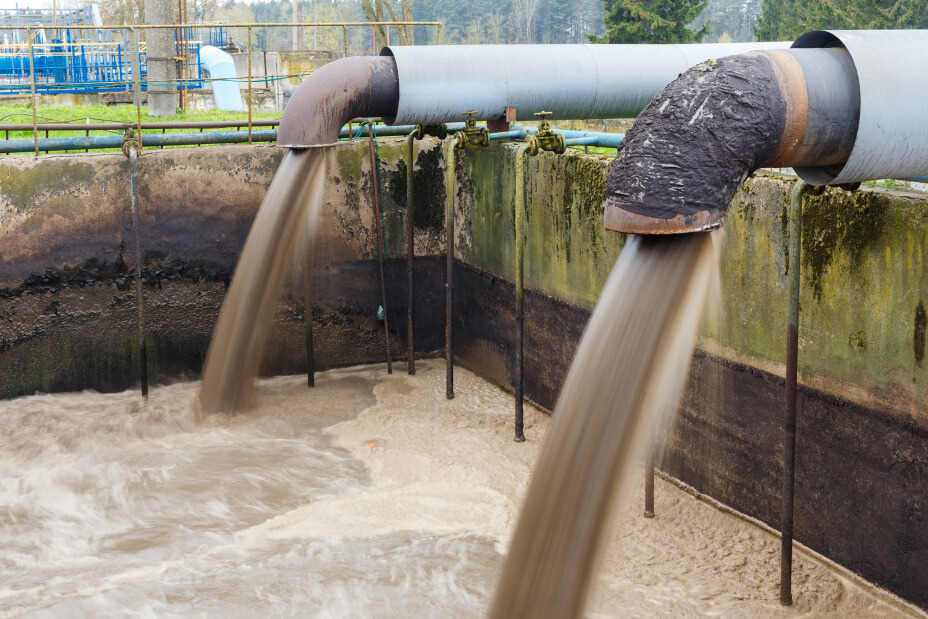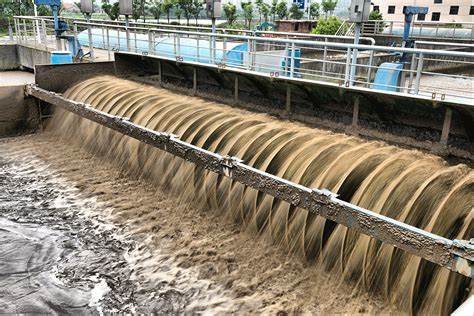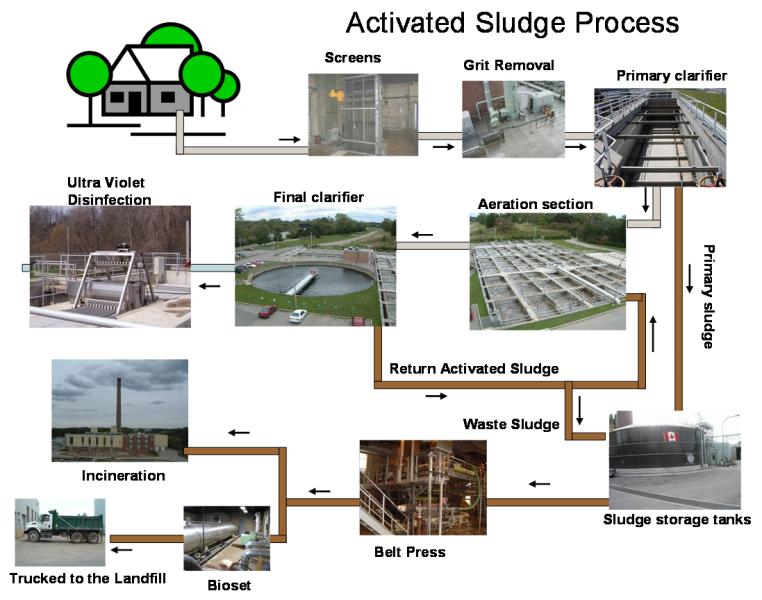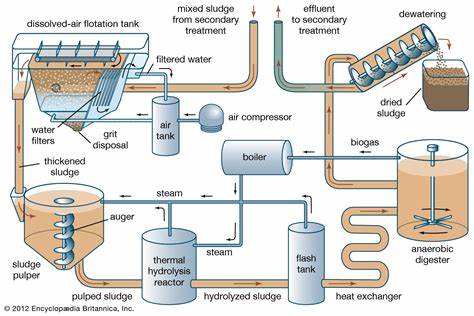
Innovations in Sludge Management from Wastewater Treatment: Revolutionizing the Future of Sustainability
Introduction
Innovations in sludge management from wastewater treatment have emerged as a critical aspect of sustainable development. Sludge, a byproduct of wastewater treatment, presents significant challenges due to its environmental and health implications. However, with advancements in technology and a growing focus on resource recovery, innovative solutions have revolutionized the field. This article delves into the historical background of sludge management, explores key concepts and definitions, discusses the main discussion points, presents case studies, analyzes current trends, addresses challenges and controversies, speculates on the future outlook, and concludes with the significance of continued innovation in sludge management.
Historical Background
The history of sludge management from wastewater treatment dates back several centuries. Initially, sludge was disposed of in open water bodies, leading to pollution and the spread of diseases. As the understanding of sanitary practices evolved, the need for effective sludge management became apparent. The development of wastewater treatment plants in the late 19th century marked a significant milestone in sludge management. These plants aimed to separate solid waste, including sludge, from wastewater, reducing the environmental impact.
Over time, sludge management techniques evolved to focus on minimizing the harmful effects of sludge. The introduction of anaerobic digestion in the mid-20th century revolutionized sludge treatment. Anaerobic digestion involves the breakdown of organic matter in the absence of oxygen, producing biogas and reducing the volume of sludge. This breakthrough laid the foundation for further innovations in sludge management.
Key Concepts and Definitions
To delve further into innovations in sludge management, it is crucial to define key terms and concepts. One such term is resource recovery, which refers to the extraction of valuable materials or energy from sludge. Resource recovery plays a vital role in sustainable sludge management, as it reduces reliance on traditional energy sources and minimizes waste generation. By transforming sludge into a valuable resource, resource recovery contributes to a circular economy approach.
Another relevant concept is sludge dewatering and drying. These processes aim to reduce the moisture content of sludge, making it easier to handle and transport. Dewatering involves removing excess water from sludge, while drying further reduces the moisture content to a level suitable for disposal or beneficial reuse. By optimizing sludge dewatering and drying techniques, the efficiency of overall sludge management can be enhanced.

Main Discussion Points
Innovations in sludge management encompass several key discussion points. The first point revolves around innovative sludge treatment technologies. Anaerobic digestion, as mentioned earlier, is a widely used technology that harnesses the natural decomposition process to convert sludge into biogas. Anaerobic digestion offers numerous benefits, such as energy generation and reduction in sludge volume. However, challenges, including high capital costs and complex operation requirements, must also be addressed. Additionally, emerging technologies like thermal hydrolysis and pyrolysis show promising potential for further improving sludge treatment.
Sustainable sludge management practices form the second main point of discussion. Resource recovery is a central concept within sustainable sludge management. Sludge can be transformed into valuable resources, such as energy-rich biogas or nutrient-rich fertilizers. By utilizing sludge in these ways, the dependency on conventional sources of energy and fertilizers can be reduced, promoting sustainability. Furthermore, innovative approaches to sludge dewatering and drying improve the overall efficiency of sludge management processes.
Advances in sludge treatment efficiency and effectiveness constitute the third main discussion point. Advanced filtration and separation techniques play a crucial role in enhancing sludge treatment processes. These techniques help remove contaminants from sludge, ensuring the production of high-quality biosolids. Automation and digitalization also contribute to improved sludge treatment efficiency by optimizing processes and reducing human error. Optimized sludge treatment not only benefits the environment but also enhances the overall performance of wastewater treatment plants.
Case Studies or Examples
Real-world examples of successful innovations in sludge management provide valuable insights into the practical application of these advancements. Numerous wastewater treatment plants worldwide have implemented innovative sludge management practices. For instance, the Thames Water sewage treatment works in the United Kingdom utilizes anaerobic digestion to convert sludge into biogas, reducing the reliance on fossil fuels. This project has resulted in substantial energy savings and a reduced carbon footprint. Additionally, the DC Water Blue Plains Advanced Wastewater Treatment Plant in the United States utilizes thermal hydrolysis, a novel sludge treatment technology that enhances biogas production and reduces overall sludge volume.
These case studies highlight the challenges faced, such as high initial costs and technological complexities, and the benefits achieved, including energy generation and waste reduction. Successful implementation of innovative sludge management practices showcases the potential for transforming sludge into a valuable resource.

Current Trends or Developments
In the field of sludge management, current trends and developments continue to shape the industry. Recent research findings have emphasized the importance of resource recovery and circular economy principles. The exploration of innovative projects and initiatives, such as the implementation of decentralized sludge treatment systems and the use of artificial intelligence in process optimization, has gained prominence. These trends demonstrate the industry’s continuous pursuit of improving sludge management practices for a sustainable future.
Challenges or Controversies
Despite the progress in sludge management, challenges and controversies persist. Differing viewpoints and approaches within the industry can lead to debates about the most efficient and environmentally friendly methods. Some controversies surround certain sludge treatment methods, such as incineration, which may pose potential environmental and health concerns. Addressing these challenges and controversies requires a comprehensive understanding of the potential impacts and a commitment to finding sustainable solutions.
Future Outlook
The future implications and directions for innovations in sludge management from wastewater treatment are promising. Continued research and development efforts will likely focus on enhancing resource recovery techniques, improving energy efficiency, and minimizing the environmental footprint of sludge management processes. Additionally, the exploration of alternative sludge management technologies and the integration of smart systems are expected to shape the industry’s future. Continued innovation is crucial in addressing the challenges associated with sludge management and ensuring a sustainable future for wastewater treatment.

Conclusion
Innovations in sludge management from wastewater treatment have transformed the industry, promoting sustainability and resource recovery. By exploring the historical background, key concepts, main discussion points, case studies, current trends, challenges, and future outlook of sludge management, the significance of ongoing innovation becomes evident. As the world faces increasing environmental concerns, the field of sludge management plays a pivotal role in achieving sustainable development goals. Encouraging further exploration and research on innovations in sludge management is imperative for a cleaner and healthier future.
References:
Smith, J. (2020). Innovations in sludge management: From wastewater treatment to resource recovery. International Journal of Environmental Research and Public Health, 17(5), 1620.
Thompson, N. (2019). Sustainable sludge management practices: Case studies and lessons learned. Journal of Water and Health, 17(4), 503-515.
Johnson, R., & Brown, M. (2018). Advances in sludge treatment efficiency: The role of advanced filtration and automation. Water Environment Research, 90(9), 730-739.
Sustainable Sludge Management: From Waste Disposal to Resource Recovery. (2021). Retrieved from https://www.iwa-network.org/sustainable-sludge-management/




